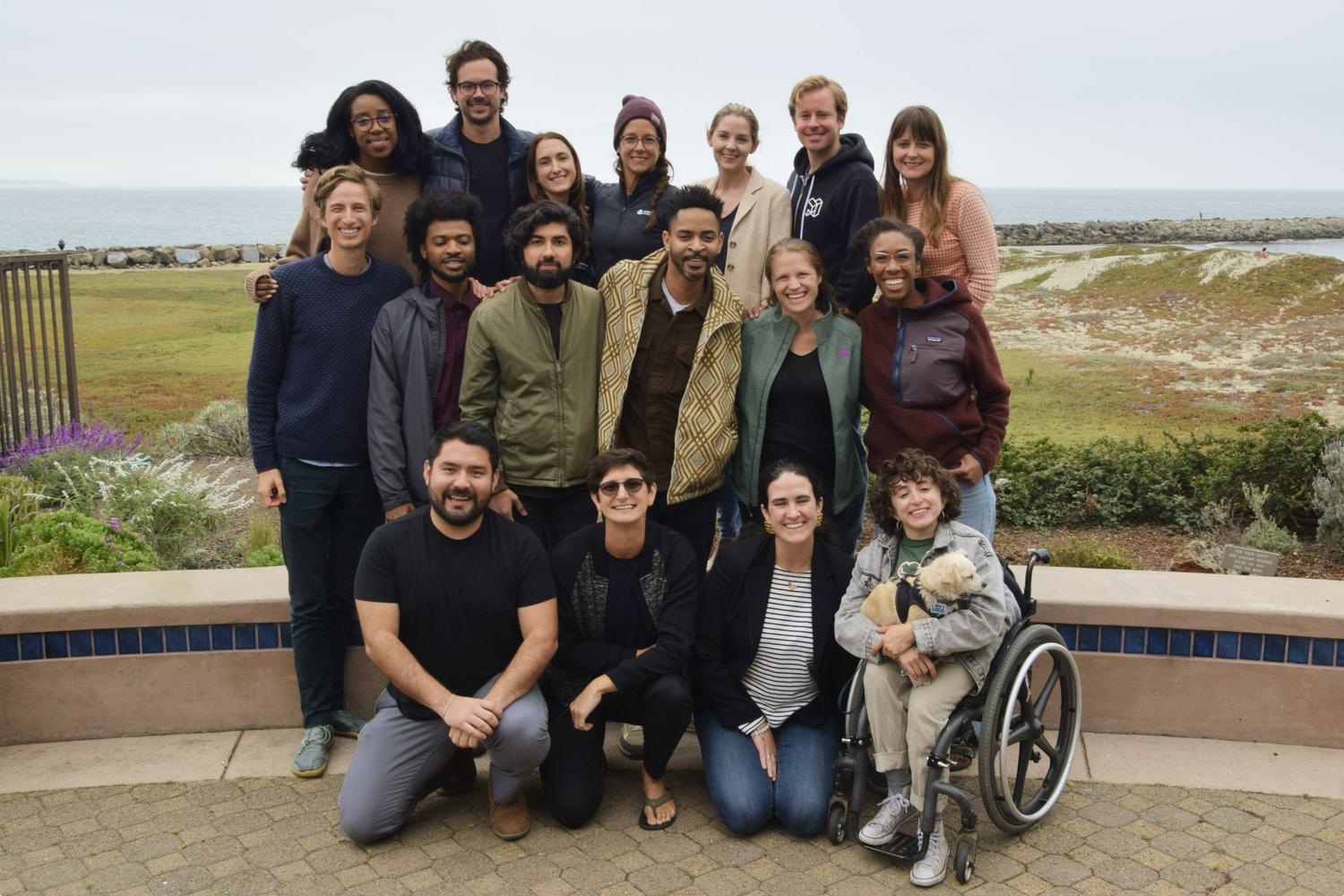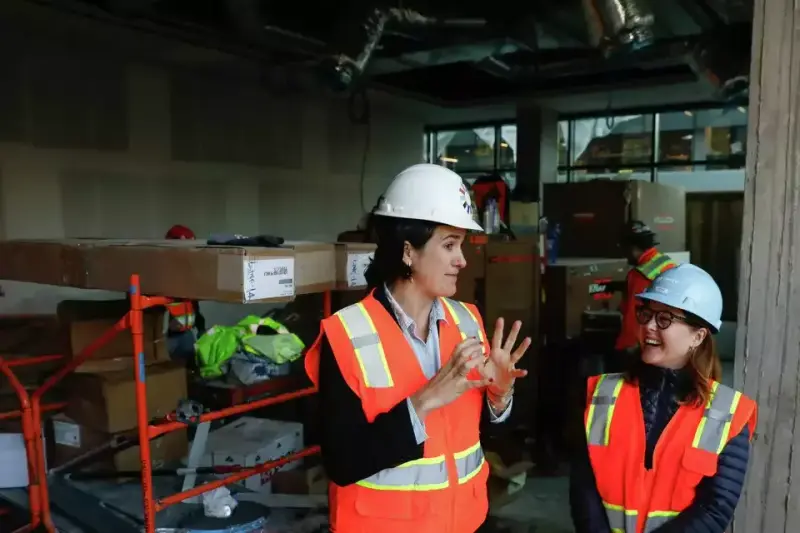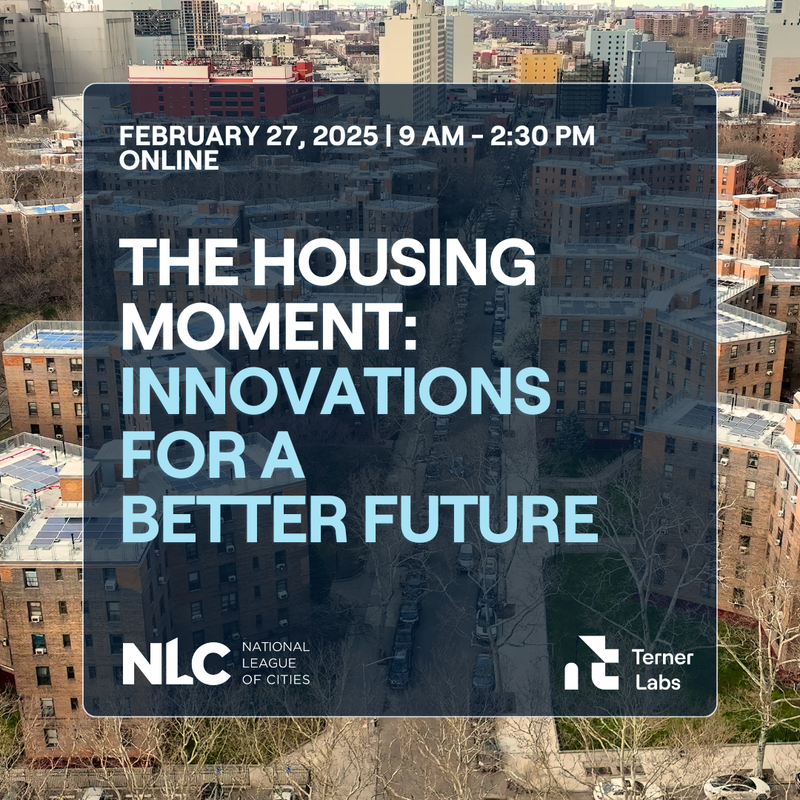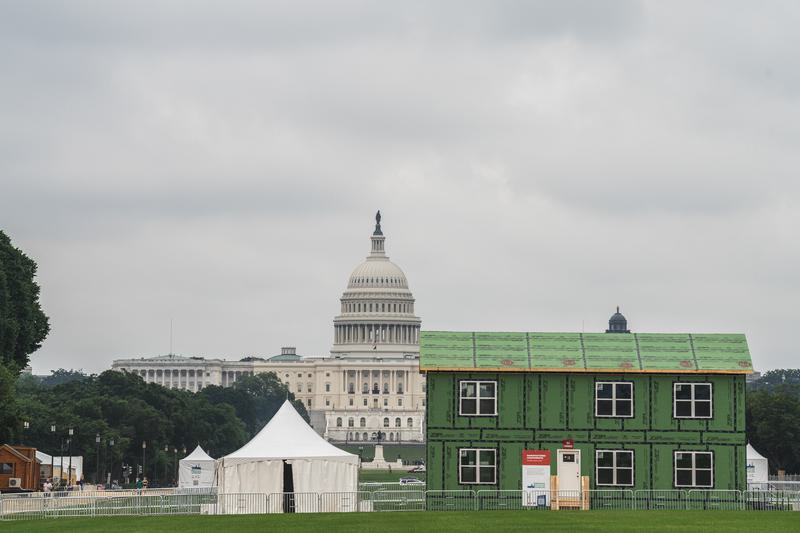Housing Lab Welcomes Six New Ventures to Third Annual Cohort, Prioritizing Housing Equity and Sustainability

Berkeley, CA - The Housing Lab, a program of the nonprofit Terner Housing Innovation Labs, today announced its third cohort of housing entrepreneurs focused on making homes and communities more affordable, accessible, and sustainable. The 2022 Housing Lab Cohort includes Frolic Communities, The Guild, The Kelsey, Parity, Pronto Housing, and Module.
The six ventures will each receive $75,000 of seed funding and six months of intensive coaching and technical support to help them to lower housing costs and eliminate systemic racial and economic barriers to housing equity. As part of a new three-year collaboration between the Housing Lab and the Wells Fargo Foundation, the 2022 Cohort includes an expanded focus on furthering organizations and businesses that address the impacts of climate change through housing construction, including innovations in carbon reduction and energy efficiency.
“The ventures selected for the 2022 Housing Lab Cohort address some of the root causes of our housing affordability, equity, and climate crises in the U.S.,” said Carol Galante, co-founder of The Housing Lab and founder and advisor of UC Berkeley’s Terner Center for Housing Innovation. “Their models and solutions are diverse, innovative, and can be scaled to reach communities all over the country, not just in their metro areas of origin.”
“Lower income households bear the brunt of climate change and solutions need to prioritize resilience, access, and cost for vulnerable communities,” said John Moon, head of Climate-Aligned Philanthropy and Partnerships at Wells Fargo. “We’re excited to support this cohort’s solutions which can have an enduring impact on current and future homes, communities and the environment.”
John Moon, Head of Climate-Aligned Philanthropy & Partnerships at Wells FargoLower income households bear the brunt of climate change and solutions need to prioritize resilience, access, and cost for vulnerable communities. We’re excited to support this cohort’s solutions which can have an enduring impact on current and future homes, communities and the environment.
Now in its third year, The Housing Lab has a proven track record of success helping 11 ventures, 63 percent of which have been led by founders of color. Past ventures have gone on to raise nearly $340 million and improve outcomes for over 23,000 people looking to find housing, pay a mortgage, or build credit. The Housing Lab is unique among accelerator programs in that it works with a variety of organizations and models—including housing developers, nonprofits, venture-backed companies, and programs of existing organizations—all of which have thrived after participating in the program.
“It has been very rewarding to watch past ventures achieve goals that were set during their time in our program,” says Michelle Boyd, Director at The Housing Lab. “Each one of this year’s selected ventures has already demonstrated the promise of their model. Their creativity and drive are inspiring, and we look forward to working with this cohort to bring their solutions to the next level.”
The 2022 Housing Lab Cohort
The six ventures selected for the 2022 cohort were chosen out of nearly 140 applicants. The organizations are advancing some of the most creative and promising solutions to affordable housing access, racial inequity in housing, displacement due to gentrification, and sustainability.
- Frolic Communities (Seattle) - Helps single-family homeowners in gentrifying neighborhoods to co-develop multi-family housing on their properties through a shared homeownership and financing model that allows the multi-family units to be sold at deeply affordable prices to low-wealth, middle-income families.
- The Guild (Atlanta) - Creates opportunities for community-owned real estate in historically black communities through two funds that make residents and businesses co-owners of a trust, enabling local communities to build equity over time.
- The Kelsey (San Francisco) - Builds accessible, affordable residential communities that are inclusive to the needs of people with disabilities and consults on new and existing developments to create more disability-forward housing.
- Module (Pittsburgh) - Reduces carbon emissions and lowers construction costs through modular housing units and helps housing providers build durable net-zero ready homes 50% faster than traditional construction.
- Parity (Baltimore) - Creates access to affordable homeownership by purchasing and renovating entire blocks of blighted housing in historically Black neighborhoods and then selling them to groups in the neighborhood at deeply affordable price points. Parity then renovates the homes in bulk, achieving economies of scale in their construction costs.
- Pronto Housing (New York) - Improves the complex affordable housing compliance process through a technology solution that reduces administrative burdens for developers and property owners and makes it easier for renters to apply for housing.
About The Housing Lab
The Housing Lab, founded in 2019 within the Terner Center for Housing Innovation at U.C. Berkeley, is now a program of Terner Housing Innovation Labs, a 501(c)3 nonprofit. With a mission to identify and accelerate early-stage ventures with the potential to make housing more affordable and fair, The Housing Lab is the first national innovation lab focused exclusively on lowering the cost of housing. The Housing Lab is supported by the Chan Zuckerberg Initiative, Wells Fargo, JPMC, The Hilton Foundation, The Ivory Foundation, The Howard and Irene Levine Family Foundation, The Making Waves Foundation, and several other philanthropic organizations and individuals.
Learn more about our past cohorts here.
Media Contact
Michelle Boyd
Director, The Housing Lab
510-200-8225
michelle.boyd@ternerlabs.org


